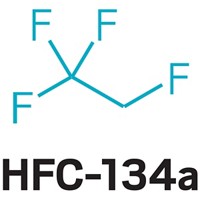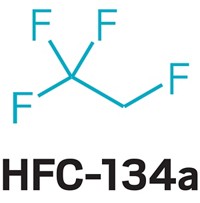Advertisement
Grab your lab coat. Let's get started
Welcome!
Welcome!
Create an account below to get 6 C&EN articles per month, receive newsletters and more - all free.
It seems this is your first time logging in online. Please enter the following information to continue.
As an ACS member you automatically get access to this site. All we need is few more details to create your reading experience.
Not you? Sign in with a different account.
Not you? Sign in with a different account.
ERROR 1
ERROR 1
ERROR 2
ERROR 2
ERROR 2
ERROR 2
ERROR 2
Password and Confirm password must match.
If you have an ACS member number, please enter it here so we can link this account to your membership. (optional)
ERROR 2
ACS values your privacy. By submitting your information, you are gaining access to C&EN and subscribing to our weekly newsletter. We use the information you provide to make your reading experience better, and we will never sell your data to third party members.
Greenhouse Gases
US Congress considering controls on hydrofluorocarbons
Legislation to ratchet down production of potent greenhouse gases has bipartisan backing
by Cheryl Hogue
January 14, 2020
| A version of this story appeared in
Volume 98, Issue 3

Legislation to phase down—but not halt—US production of hydrofluorocarbons (HFCs) is picking up steam in Congress. H.R. 5544 in the House of Representatives and its Senate companion bill, S. 2754, have bipartisan support.
Used as refrigerants in applications from air conditioners to commercial freezers, HFCs are potent greenhouse gases that have been widely used as substitutes for ozone-depleting chemicals such as chlorofluorocarbons (CFCs). Emissions of HFCs are growing.
The House and Senate bills hew closely to provisions in the 1990 Clean Air Act Amendments that successfully led the US to phase out production of ozone-depleting chemicals. The legislation would mandate the Environmental Protection Agency (EPA) to create a system of allowances for HFC manufacture or import that companies could buy and sell. US production would phase down over 15 years, stopping at 15% of current production in 2036.
If enacted, the legislation would boost the market for hydrofluoroolefins, a new generation of refrigerants. Currently made by Honeywell International and Chemours, these chemicals have very low potential to cause global warming.
Internationally, countries have agreed to phase down production and use of HFCs in an agreement called the Kigali Amendment. The US has not ratified the Kigali deal, though a broad group of US stakeholders has asked the Trump administration to implement it.
The pending legislation would put the US on a path similar to but not completely in line with the terms of the Kigali Amendment. Backers of the measure include a major industry group—the US Chamber of Commerce—as well as environmental advocates and the heating, air conditioning, and refrigeration sector.
Sponsors of the legislation are casting it as a way to create jobs and drive innovation and economic growth in the US. But at a Jan. 14 hearing in the House, some Republicans, led by Rep. Markwayne Mullin of Oklahoma, attacked the measure as potentially costly to consumers and small businesses.
Congress is considering the legislation after an EPA attempt to control HFCs was struck down by a federal court in 2017.





Join the conversation
Contact the reporter
Submit a Letter to the Editor for publication
Engage with us on Twitter